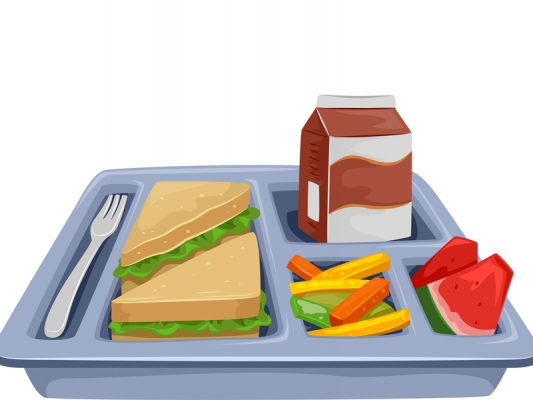
On Wednesday, November 25th, while families were on break, the USDA published a proposed set of rollbacks for Child Nutrition Programs. These “flexibilities” would add sugar and remove fiber at a time when we should be reducing sugar and increasing fiber to help our children build resiliency to COVID-19 and other illnesses. Nutrition is more important than ever, so please, raise your voice and let the USDA know it’s time to prioritize our children’s health. The public comment period is open through December 28th, 2020.
What these rollbacks would allow
Flexibilities for Milk, Whole Grains, and Sodium Requirements in Child Nutrition Programs:
- Meal programs allowed to permanently offer flavored, low-fat milk as part of the reimbursable meal, increasing the likelihood of children choosing a higher sugar beverage with their meal
- Only half of the weekly grains offered in breakfast and lunch programs to be whole-grain rich, reducing the amount of required whole grains by 50%, removing vital fiber from children’s diets
- An extension of the timeline for school breakfast and lunch programs to reduce the levels of sodium in their meals
Why this is harmful to the health of our children
Under normal circumstances, school meal programs can be responsible for up to 50% of a child’s caloric intake. During this pandemic, it has become the only meal source for an increasing number of children each week, so it’s even more important that these meals are nutritious. Higher school meal standards have been proven to improve the health of the next generation. Without the previous higher standards, for children living in poverty, the risk of obesity would have been 47% higher in 2018. These new changes would likely roll back progress.
Schools work hard to keep all of their students fed and ensure no one is left hungry. These dedicated foodservice directors and their staff want to make sure their children receive the most nutritious meals possible. Rollbacks at the federal level can influence the types of foods available to the districts through heavily regulated purchasing structures. Influential big food companies prioritize lower cost and higher sugar processed foods reducing the availability of nutrient-dense options.
Eat REAL works with schools to maintain a higher standard
Eat REAL Certification goes above and beyond national standards, providing guidance and support for schools in their journey to increase real food offerings, remove sugar, and eliminate overly processed foods. Together with our school district leaders, we are ensuring that children receive the best possible food. While guidelines and administrations may change, our evidence-based standards will continue to raise the bar for the next generation.
What you can do
For this proposed rule, the public comment period is open and accepting comments through December 28th, 2020. These comments are taken into consideration before a rule is passed or declined. You can read the public comments already submitted and submit your own here.
The movement to make lasting food systems change in our schools doesn’t stop here. We urge the Biden-Harris Administration Transition Team to put repealing these proposed rollbacks at the top of their list. The Biden-Harris Administration should help us come together to demand and encourage standards and policies that protect our children’s health.
Share this post
Share on facebook
Share on google
Share on twitter
Share on linkedin
Share on pinterest
Share on print
Share on email
